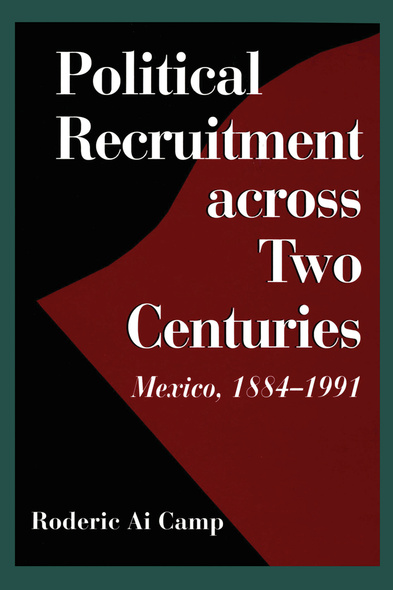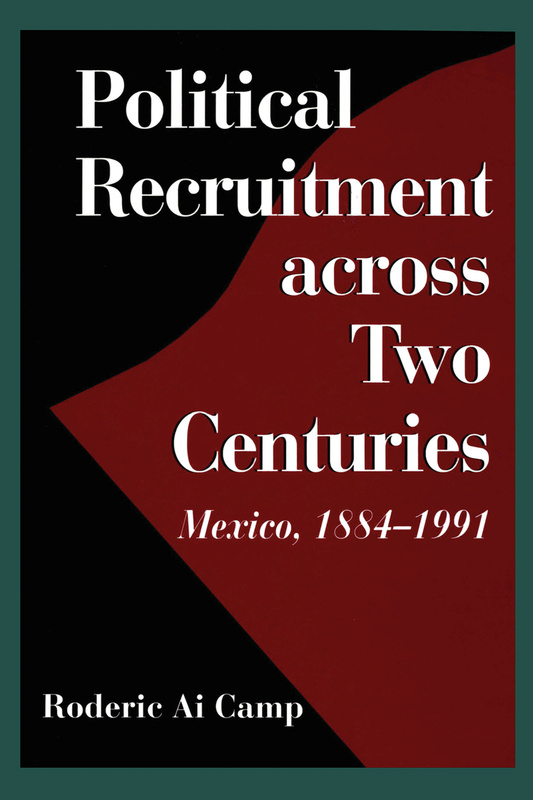Political Recruitment across Two Centuries
Mexico, 1884-1991
During more than twenty years of field research, Roderic Ai Camp built a monumental database of biographical information on more than 3,000 leading national figures in Mexico. In this major contribution to Mexican political history, he draws on that database to present a definitive account of the paths to power Mexican political leaders pursued during the period 1884 to 1992.
Camp’s research clarifies the patterns of political recruitment in Mexico, showing the consequences of choosing one group over another. It calls into question numerous traditional assumptions, including that upward political mobility was a cause of the Mexican Revolution of 1910.
Comparing Mexican practices with those in several East Asian countries also allows Camp to question many of the tenets of political recruitment theory. His book will be of interest to students not only of Mexican politics but also of history, comparative politics, political leadership, and Third World development.
Camp’s new book is yet another in his outstanding series of studies of political leadership in Mexico. . . . He provides the reader with a clear picture of the ways in which the Mexican political elite has been and continues to be created and to recreate itself. . . . It will be required reading for the specialist but also usable in the classroom and of great interest for the general reader.
- List of Tables
- Acknowledgments
- 1. Recruitment and Modernization: A Mexican Model
- Arguments for Examining Political Recruitment
- The Mexican Approach: A Brief Aside
- The Theoretical Constructs
- Conclusions
- Notes
- 2. Age as a Variable in Political Recruitment
- Factors Contributing to Age Cohorts in Mexico
- Presidential Political Generations
- Conclusions
- Notes
- 3. Experience and Leadership: The Role of Combat
- The Role of Nineteenth-Century Violence
- The Role of the Mexican Revolution
- Conclusions
- Notes
- 4. Education and Politics: Formation and Recruitment of National Leaders
- The Institutionalization of Education
- Centralizing Education and Enhancing the Recruitment Function
- Conclusions
- Notes
- 5. Experience and Leadership: The Influence of Careers
- The Interlocking Structures—A Power Elite in Mexico?
- The Military
- Business Leaders as Politicians
- The Public Sector and the Professions
- Conclusions
- Notes
- 6. Gender, Place, and Family in Leadership Credentials
- The Role of Gender
- The Influence of Place
- Socioeconomic Origins
- Conclusions
- Notes
- 7. The Opposition: An Alternative Path to Leadership?
- Special Qualities of Opposition Leadership
- Opposition Socioeconomic Origins
- Conclusions
- Notes
- 8. The Branches of Government: Who Recruits Whom
- Background Variables
- Career Choices
- Educational Influences
- Conclusions
- Notes
- 9. Salinas in Power: A Case Study of Recruitment in Practice
- Presidential Mentoring
- The Political Technocrat
- Conclusions
- Notes
- Bibliographic Essay
- Index





